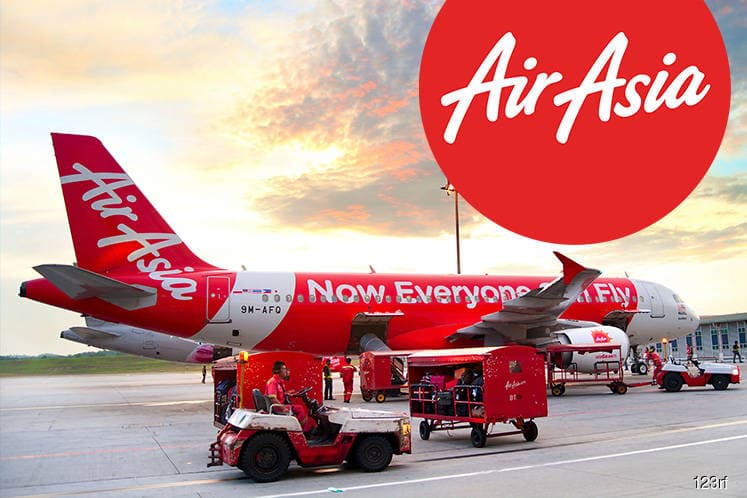
This article first appeared in The Edge Financial Daily on May 15, 2018
AirAsia Group Bhd
(May 14, RM3.50)
Downgrade to hold with a lower target price (TP) or RM3.84: Brent crude oil prices have rallied 15% to US$77 (RM304.15) per barrel (bbl) so far this year on a powerful combination of drivers, including decent growth in global oil demand, slower-than expected global oil supply growth due to Opec discipline and involuntary production declines at Venezuela and Mexico, a likely acceleration of the pace of global oil inventory destocking in the second half of 2018, bottlenecks in US shale oil production growth until the third quarter of 2019 (3Q19) and the likely reimposition of sanctions on Iran by the US.
For 2018, the AirAsia group only hedged about 12% of its jet fuel requirements at an average strike price of US$68.55/bbl. This is in contrast to the 2017 position where it had hedged 75% of its requirements at an average price of US$60/bbl. As a result, the AirAsia group is largely exposed to the spot price of jet fuel.
Meanwhile, since the start of 2018, the US dollar has appreciated by 3% against the Indonesian rupiah and by 5% against the Philippine peso. More upside for the US dollar is possible against these two currencies due to the impact of higher oil prices on their economies. The depreciation of these currencies, on top of higher oil prices, is expected to drive Indonesia AirAsia (IAA) and Philippines AirAsia (PAA) back into the red for financial year 2018 forecast (FY18F), although both airlines delivered profits in FY17.
We expect PAA to come under severe pressure from the six-month closure of the Boracay island resort from late-April to late-October 2018 as island traffic accounts for 22% of its seat capacity. PAA increased its fleet by three aircraft in FY17 (+21% year-on-year [y-o-y]) and added a staggering four planes in 1QFY18F alone, bringing the fleet to a total of 21 planes (+40% y-o-y). The fleet growth could not have come at a more inopportune time.
We expect Malaysia AirAsia’s (MAA) core earnings to decline in FY18F as a result of higher oil prices and lower yields arising from rapid capacity expansion but this is balanced by its stronger competitive position after competitors like MAS and Malindo withdrew capacity from the domestic market in 2017. Meanwhile, Thai AirAsia (TAA) should deliver slightly stronger core earnings despite the higher oil prices due to yield recovery in the domestic aviation space as well as continued robust growth of inbound Chinese tourist numbers.
AirAsia Group Bhd shareholders were to vote on the sale to, and leaseback of aircraft from, BBAM Ltd yesterday. We expect the transaction to go through because the valuation is reasonable, based on our calculations, and the transaction should yield a special dividend of 75 sen per share. The BBAM transaction is expected to be completed by 3QFY18F and result in a decline in recurring earnings as a result of the higher cost of leasing compared to owning. However, AirAsia’s gearing levels should also decline significantly. — CGSCIMB Research, May 14